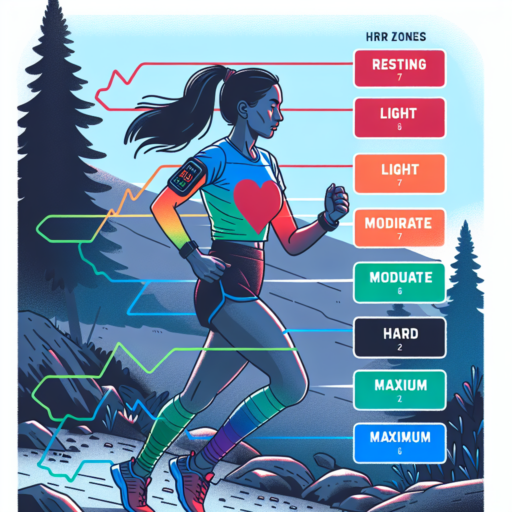How can I predict my 5K time?
Predicting your 5K time is a common goal among runners, both new and experienced. The key to a precise prediction involves considering several factors, including your current fitness level, training intensity, and previous race times if any. By understanding and analyzing these elements, you can set realistic expectations and targets for your upcoming race.
Understanding Your Fitness Level
The foundation of a reliable 5K time prediction lies in a thorough assessment of your current fitness level. This doesn’t solely rely on how much you can run, but also on your overall physical condition. For instance, incorporating a mix of endurance runs, interval training, and even cross-training activities into your routine can enhance your cardiovascular health, which is critical for a strong 5K performance. Keeping track of metrics such as resting heart rate and VO2 max can also provide insight into your fitness progress over time.
Training Intensity and Volume
Your training plan plays a crucial role in predicting your 5K time. A balanced approach that gradually increases in intensity and volume will prepare your body more effectively for the race. Implementing speed work and tempo runs into your regimen can significantly improve your pace and stamina. It’s important, however, to avoid overtraining as it can lead to injury or burnout, compromising your race performance.
Previous Race Times and Experiences
If you have participated in races before, analyzing your previous times and the conditions under which those races were run can offer valuable insights. Understanding the impact of different terrains, weather conditions, and even your mental state can help you adjust your strategies and expectations for the upcoming 5K challenge. For novice runners, participating in a few shorter races or time trials prior to the main event can serve as a good benchmark for their potential 5K performance.
How to determine 5K goal pace?
Establishing your 5K goal pace is essential for both new and experienced runners aiming to achieve their best time in a 5K race. This pace, typically measured in minutes per kilometer or mile, will guide your training and racing strategy. To determine your optimal 5K goal pace, begin by assessing your current running capacity and using it as a benchmark for setting realistic goals.
An effective way to estimate your 5K goal pace is through a recent race or time trial over a shorter distance, such as a 1-mile or 2K run. Performance in these distances can be extrapolated to predict your 5K potential. Utilize online pace calculators that input your shorter race times and, based on formulae and algorithms, estimate an achievable 5K pace. This method takes into account your current fitness level and offers a target pace that challenges yet is within reach.
Integrating tempo runs and intervals at your determined goal pace into your training plan is crucial for success. Tempo runs help you sustain efforts at your goal pace for longer periods, while intervals familiarize your body with the speed and intensity of race conditions. By balancing these workouts with adequate recovery, you can progressively adapt to running faster and more efficiently, turning your 5K goal pace from an ambitious target into a realized achievement on race day.
How to calculate race times?
Calculating race times is essential for both amateur and professional runners seeking to track their progress or set new goals. It involves understanding several factors, including distance, pace, and your current fitness level. By breaking down these elements, athletes can effectively gauge their performance and set realistic targets for improvement.
The Basics of Race Time Calculation
To begin calculating your race times, you must first have a clear grasp of the distance you intend to run. Races commonly range from short sprints to marathons, with distances varying accordingly. Once the distance is known, the next step is to determine your average pace. Pace is usually measured in minutes per mile or kilometer and can be calculated by dividing your running time by the distance covered. Knowing your pace is crucial as it serves as the foundation for predicting how long it will take to complete your chosen distance.
Utilizing Race Time Calculators
For those looking for a more straightforward approach, numerous online race time calculators are available. These tools ask for basic information such as your recent race times, the distance of those races, and the distance of the race you’re planning to run. By inputting this data, you receive an estimated race time, taking the guesswork out of your calculations. It’s important to note, however, that while these calculators provide a good ballpark figure, they may not account for all variables such as terrain, weather, and personal health fluctuations on the day of the race.
No se han encontrado productos.
How do you calculate target marathon pace?
Calculating your target marathon pace is a blend of art and science that hinges primarily on understanding your current fitness level and setting realistic race day goals. Initially, to get a baseline, examine your recent race times over shorter distances, such as 5Ks or half-marathons. These times can serve as a foundation to predict your marathon pace using various online calculators or coaching formulas. However, it’s critical to also factor in variables such as training volume, race day conditions, and personal health on the day.
Step-by-Step Process to Determine Marathon Pace
Begin by gathering your recent race times and, if available, your average weekly mileage over the past three months. This data will offer insight into your endurance and speed capabilities. Next, consider using the Jack Daniels’ Running Formula or similar pace calculators, which estimate your marathon time based on shorter races. Remember, the key is realistic and achievable pacing, which means adjusting for any expected race day challenges like weather or elevation changes. A common mistake is overestimating your pace, leading to early fatigue during the marathon.
Pace Adjustment for Race Day Variables
Once you have a calculated marathon pace, it’s essential to adjust for race day conditions. Elements such as heat, humidity, and the course profile can significantly impact performance. For a hot and humid race day, consider slowing your pace to avoid overheating. Similarly, a hilly course will require strategic pacing, alternating between slower speeds on ascents and potentially faster paces on declines while maintaining an overall effort that matches your target pace. Regular training in similar conditions to your race can also help in fine-tuning your pacing strategy.




